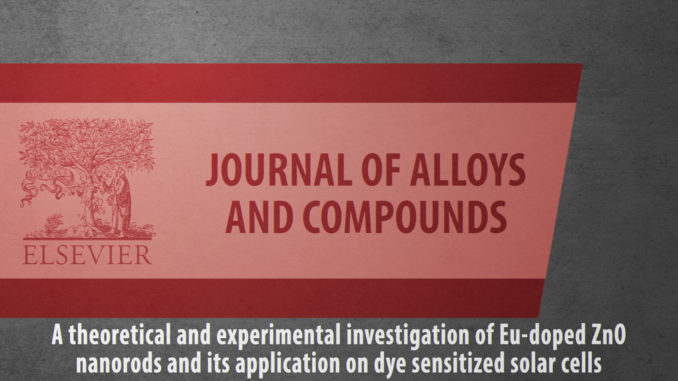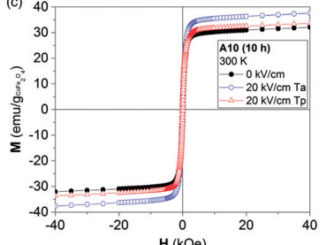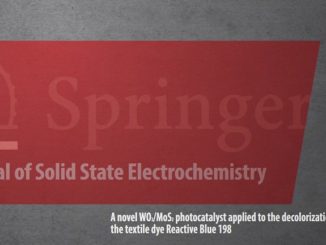
A theoretical and experimental investigation of Eu-doped ZnO nanorods and its application on dye sensitized solar cells
Abstract: This paper describes the electrodeposition of Europium-doped Zinc Oxide (ZnO) nanorods as well its application as photoanodes in dye sensitized solar cells(DSSCs). The incorporation of the Europium in the ZnO structure was evidenced by X-ray diffraction (XRD) and X-ray photoelectron spectroscopy (XPS). The DSSCs based on Eu-doped nanorods photoanodes exhibits a higher conversion efficiency value (η) (0.50%) compared to the undoped photoanodes (0.34%). Mott-Schottky analysis was performed and this increase is assigned to the better electronic injection efficiency from the dye to the conduction band of Eu-doped ZnO nanorods, since the Europium incorporation in the ZnO matrix was able to down-shift its conduction band. The improvement on the DSSC performance was around 45%, showing the great potential from the practical point of view. To complement the experimental data, computational simulations were employed based on DFT framework, in order to carry out a detailed analysis of the electronic structures of these materials, as well as to provide an elucidation of its underlying physical mechanism at an atomic level.
Authors: André Felipe Vale da Fonseca, Renato Luiz Siqueira, Richard Landers, Jefferson Luis Ferrari, Naiara L. Marana, Júlio R. Sambrano, Felipe de Almeida La Porta & Marco Antônio Schiavon.
Journal of Alloys and Compounds
Volume 739, 30 March 2018, Pages 939-947
DOI: https://doi.org/10.1016/j.jallcom.2017.12.262
PDF: A theoretical and experimental investigation of Eu-doped ZnO nanorods




